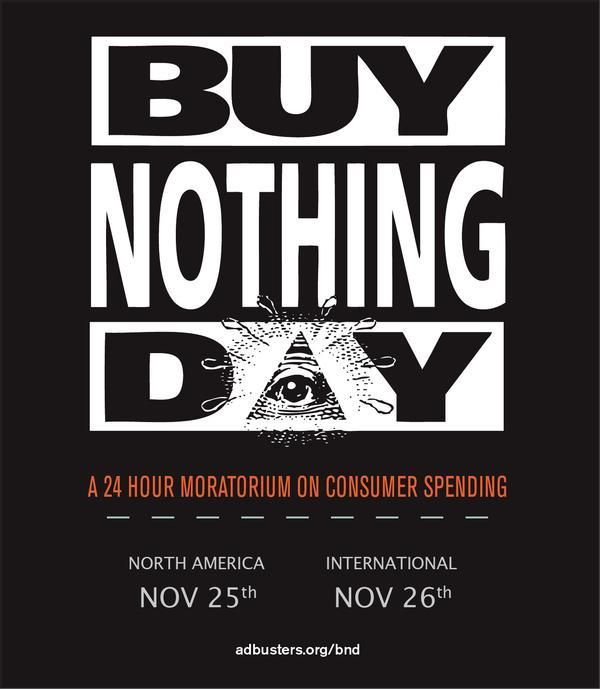“Punting the Pundits” is an Open Thread. It is a selection of editorials and opinions from around the news medium and the internet blogs. The intent is to provide a forum for your reactions and opinions, not just to the opinions presented, but to what ever you find important.
Thanks to ek hornbeck, click on the link and you can access all the past “Punting the Pundits”.
The Sunday Talking Heads:
Up with Chris Hayes: Chris Hayes will be doing a Post Mortem on the Super Committee. One of his guests will be Washington Post political columnist and MSNBC contributor, Ezra Klein.
This Week with Christiane Amanpour: Sen. Pat Toomey (R-PA), former Secretary of State Colin Powell, actor and activist Matt Damon and Microsoft chairman Bill Gates are guests. The roundtable guests are ABC’s Cokie Roberts and Sam Donaldson, ABC News senior political correspondent Jonathan Karl, and Washington Post columnist Michael Gerson.
Face the Nation with Bob Schieffer: Guests are bestselling authors Kathryn Stockett, Walter Isaacson, Michael Lewis, and Condoleezza Rice for Face the Nation’s annual Books and Authors show.
The Chris Matthews Show: This week’s guests Clarence Page, Chicago Tribune Columnist, Andrew Sullivan, The Daily Beast Editor, The Dish, Kelly O’Donnell, NBC News Capitol Hill Correspondent and Katty Kay, BBC Washington Correspondent.
Meet the Press with David Gregory: Chairman of the Democratic Policy Committee, Sen. Chuck Schumer (D-NY) and President of Americans for Tax Reform, Grover Norquist are guests. The roundtable guests are presidential historians, Doris Kearns Goodwin and Michael Beschloss, Georgetown professor and author, Michael Eric Dyson, author and executive editor at Random House, Jon Meacham and the editor of the National Review, Rich Lowry.
State of the Union with Candy Crowley: This week the guests are presidential candidate Herman Cain and former Secretary of State Condoleezza Rice. Panel guests are an expert on political advertising, Ken Goldstein, former Hillary Clinton adviser Kiki McLean and former advertising director for President George W. Bush, Mark McKinnon.
Most political analysis of America’s awful economy focuses on whether it will doom President Obama’s reelection or cause Congress to turn toward one party or the other. These are important questions, but we should really be looking at the deeper problems with which whoever wins in 2012 will have to deal.
Not to depress you, but our economic troubles are likely to continue for many years – a decade or more. At the current rate of job growth (averaging 90,000 new jobs per month over the last six months), 14 million Americans will remain permanently unemployed. The consensus estimate is that at least 90,000 new jobs are needed just to keep up with the growth of the labor force. Even if we get back to a normal rate of 200,000 new jobs per month, unemployment will stay high for at least ten years. Years of high unemployment will likely result in a vicious cycle, as relatively lower spending by the middle-class further slows job growth.
Richard (RJ) Eskow: From Alexandria To Zuccotti Park: They’ve Been Destroying Books For 2,000 Years
Fahrenheit 451: The temperature at which book paper catches fire and burns.
They’re back.
But then, they’ve never gone away. The Book Killers have always been with us. Before recorded history they were with us, murdering the scholars and storytellers and mystics of every tribe they ever conquered.
They were there when Great Library burned in Alexandria 2,000 years ago. They destroyed the library known as the House of Wisdom when the Mongol Empire invaded Baghdad in 1258. They say the invaders took the books from every ruined library in Baghdad and piled them into the Tigris River, to serve as a bridge for their soldiers and chariots.
They say the river ran black with ink for years.
In 2003 the United States invaded Iraq with an indifference, incompetence, and arrogance that led to anarchy in the streets. There was widespread rioting, vandalism, and looting of priceless ancient antiquities and manuscripts. The National Library burned, and the flames lit the skies for miles around.
Seven centuries later, the great library of Baghdad died again.
Michelle Chen: Washington’s Debt Panic and the Real Social Debt in America
In the wake of the Congressional super committee’s collapse, we finally have consensus on both sides of the aisle: the lawmakers orchestrating the partisan drama are, behind the scenes, happy to collaborate on destroying economic security for all but the wealthiest Americans.
Though the debt hysteria made good political theater, the main immediate impact on the budget is simply to prolong the sense of doom hovering over struggling households. The budget problem those families face isn’t some theoretical future debt crisis but the possibility of losing unemployment checks when a year-end legislative deadline hits.
Coleen Rowley: Celebrating Spiritual Death On Black Friday
How many remember that this “Black Friday” marks the 10th anniversary of George Bush’s famous presidential advisory just after 9/11 for citizens to do their patriotic duty by pushing their worries aside and going shopping? The idea of asking the American people to make sacrifices in the face of the coming “War on Terror” was too ’70s, too Jimmy Carter. [..]
By incessantly pushing on the emotional hot-buttons of fear, hate, greed, false pride and blind loyalty (in that order), warmongers and flim-flam men have, since time immemorial, sought to bring out the worst in human beings. Up to now the propaganda has worked, persuading most Americans to accept with minimal visible coercion the enormous corruption and cruelty at the heart of the corporate-military-industrial-congressional-media complex.
Robert Naiman: Saving lives – and billions – in Afghanistan
The Merkley amendment to withdraw troops will save American lives and money – and it’s in line with public opinion.
Washington, DC – If Senator Jeff Merkley’s “expedite the drawdown from Afghanistan” amendment to the National Defense Authorisation Act makes a strong showing, it could tip the Obama administration towards a faster drawdown.
That would likely save hundreds of US and Afghan lives – not to mention all the people who wouldn’t be physically and psychologically maimed – and could easily save the US hundreds of billions of dollars, at a time when the alleged need for fiscal austerity is being touted as a reason to cut Social Security benefits and raise the Medicare retirement age.
Everyone knows the Hippocratic Oath: “First, do no harm.” It’s a great motto to try to live by. But, unfortunately, in this life on Earth, “do no harm” isn’t always on the menu at the restaurant. Sometimes, you’re already doing harm, and there’s no feasible immediate path to zero harm. Sometimes the best you can do in the short run is to reduce the harm as much as possible. And if that’s the best you can do, then that is what you must do. It’s not politically feasible, unfortunately, to end the war tomorrow.
But we could take a big bite out of it in the next week. And that would save many lives and real money.



Recent Comments